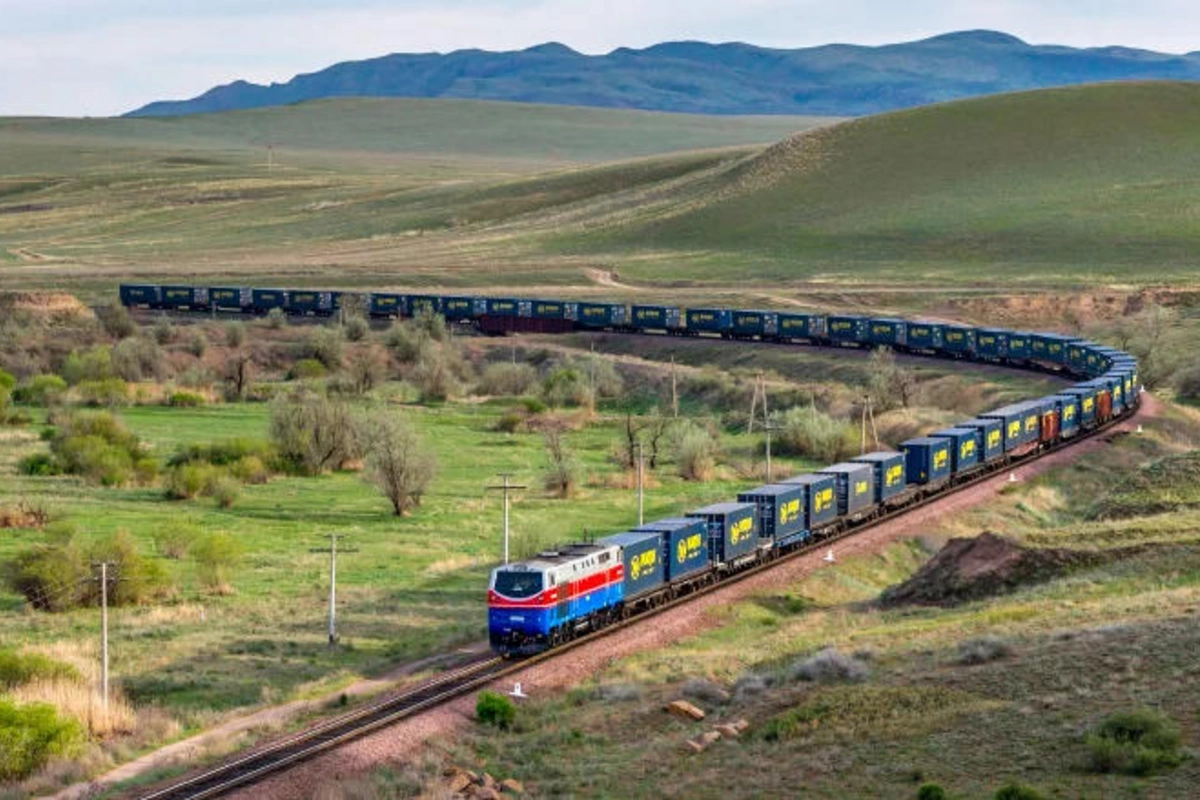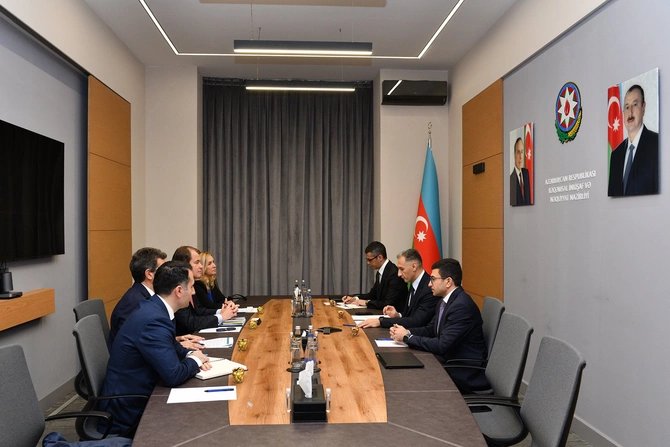
With increasing interest in the Middle Corridor due to its logistical advantages and growing geopolitical challenges, Azerbaijan’s investments in transport infrastructure are positioning it as a key hub in global trade, especially amid disruptions to traditional transit routes like the Suez Canal.
Azerbaijan and the International Maritime Organisation (IMO) have discussed ways to develop the Trans-Caspian International Transport Route (Middle Corridor).
This was announced by Azerbaijan's Minister of Digital Development and Transport Rashad Nabiyev on his page on social network X, The Caspian Post reports.
The discussions took place within the framework of a meeting with IMO Secretary-General Arsenio Dominguez, who is on a visit to Azerbaijan.
‘We discussed issues of cooperation, in particular opportunities for the development of the Middle Corridor. We also considered the establishment of a regional training centre," the publication says.

Notably, interest in the Middle Corridor, or Trans-Caspian route, is rising swiftly thanks to its shorter delivery times, convenience, and improved logistical safety. This development is especially significant given sanctions on Russia’s Northern route and growing instability in the Middle East, which threatens transit through the Suez Canal.
Azerbaijan has invested billions into its transport and logistics infrastructure, positioning itself as a crucial hub for the Middle Corridor and attracting cargo carriers over the last three years. The recent "Black Sea-Caspian Logistics Forum 2024: Corridors, Cargoes, Infrastructure," held in Baku, highlighted the success of these efforts.
The demand for cargo transit via the Middle Corridor has surged as geopolitical tensions across Eurasia disrupt traditional routes. Azerbaijan’s strategic location, intersecting key rail and sea routes of the ancient Silk Road, has made it an ideal transit point.
Its partners — Central Asia, Europe, Georgia, Türkiye, and China — are advancing new initiatives to boost cooperation, with key projects including the EU-supported Europe-Caucasus-Asia (TRACECA) route, China’s Belt and Road Initiative, the Lapis Lazuli project, and the Trans-Caspian International Transport Route (TITR), which links the upgraded Baku-Tbilisi-Kars (BTK) railway.
Baku and Astana, major TITR partners, are actively modernising port and railway infrastructure along the route. Key developments include a roadmap to eliminate transit "bottlenecks" and improve the Middle Corridor from 2022 to 2027.
Upgrades are underway at the port of Aktau and the container terminal in Alat, aiming to increase capacity to over 300,000 containers, with a long-term goal of 600,000. The BTK railway now handles up to 5 million tonnes of cargo, while the Alat International Trade Port has expanded capacity to 25 million tonnes, including a new fertiliser terminal inaugurated last year.
These investments have led to a 65% rise in cargo volumes along the Middle Corridor in 2023, nearing 3 million tonnes, with projections suggesting this could surpass 4.2 million tonnes by year-end 2024.
Share on social media